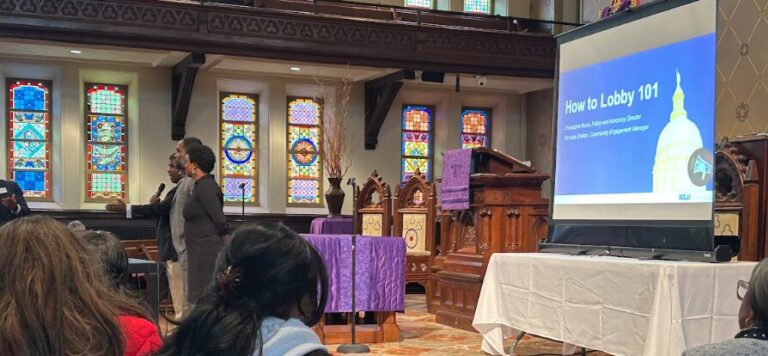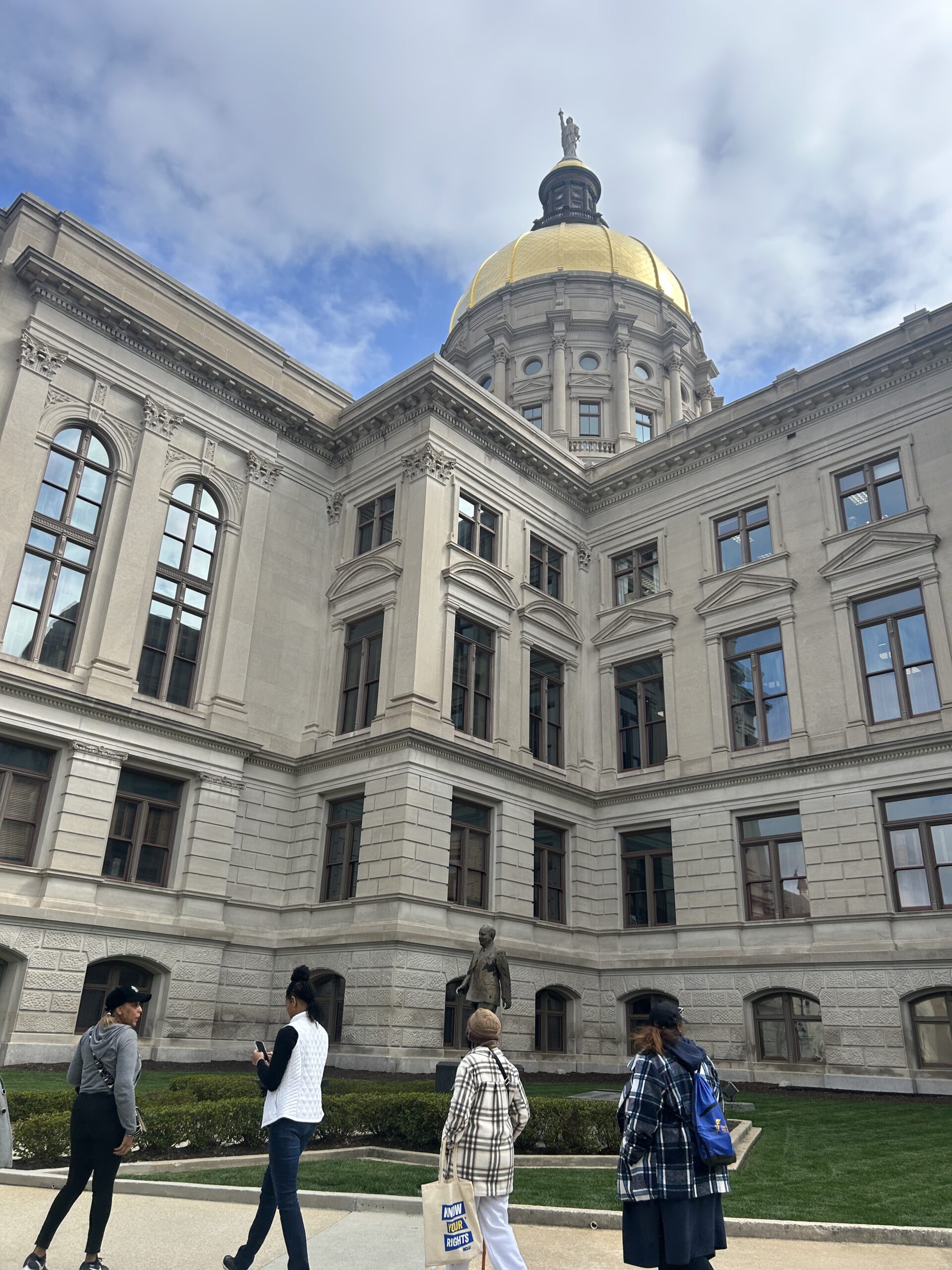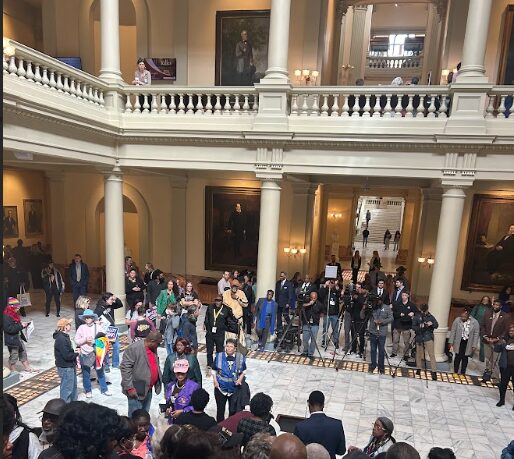
Tell us about yourself
I am Taylor Spicer, and I have lived in Atlanta, Georgia since 2012. I joined the ESAL team as the managing director and am now the executive director. I have an academic background in cultural anthropology, international relations, and international development. Before joining ESAL, I worked locally for a nonprofit association and for the sustainability office of Emory University and Emory Healthcare.
What did you do?
I attended a legislative day, sometimes also called a “day at the Capitol” or “lobby day,” at the Georgia State Capitol. The event was organized by four nonpartisan groups–the League of Women Voters (LWV), the American Civil Liberties Union (ACLU), the National Association for the Advancement of Colored People (NAACP), and the Urban League of Greater Atlanta–that formed a coalition to advocate for civil rights at the state level.

How did you identify and take advantage of the opportunity?
Events like this are promoted to organization members but not also announced publicly, I received notice from the LWV and ACLU newsletters. I attended the event because it was framed as a coalition of well-established nonpartisan organizations coming together to teach individuals and groups about state-level civil rights legislation and the process of speaking with legislators at the Capitol.
What happened?
The group of over 500 Georgians convened in the morning at the church across the street from the Capitol. Attendees enjoyed breakfast, discussions with other attendees, and remarks from leaders of the coordinating organizations. Each group shared the purposes and statuses of bills that their groups were tracking, including bills affecting civil rights protections, voting rights, diversity, equity, and inclusion, criminal justice, and environmental justice. Attendees had the chance to learn the bill names, numbers, sponsors and progress of the bills and ask clarifying questions. The ACLU led the group through an overview of strategies individuals and groups can use to tell legislators why they should vote a certain way on a bill.
After the training, I walked with the group across the street to understand how to put what we learned into practice. To enter the Capitol, we all had to wait in a security line, walk through a metal detector, pass our belongings through a screener, and show proof of identification. Once we cleared security, we turned into the atrium below the House floor, which was buzzing with activity. In the morning, another coalition hosted “Conservation Day at the Capitol,” so signs about protecting the Okefenokee Swamp were intermingled with Human Rights Campaign “Pride to the Capitol” signs and flags held by supporters coalescing for an afternoon rally. Lobbyists, representatives, and staffers moved up and down the stairs to and from the chambers, committee rooms, their offices, and press conferences.
The group I was with navigated the stairs to the hallway outside the House chamber. There we talked through the process to meet our representative “on the ropes,” meaning outside the chamber. They showed the group where to get the forms you complete to request time with your legislator. Once you complete the form, you hand it to a page, who delivers it to your representative. If they are able, your representative will step out to speak with you. The process is similar for the Senate and House.

The group then walked to a separate building housing legislators’ offices. In Georgia, legislators share offices, so you can often speak with staff members of multiple representatives if your legislator is unavailable. The group spoke with staffers of Rep. Jasmine Clark to learn about the committee assignment of HB 670 “Georgia Civil Rights Act of 2025.” The group also dropped off handwritten cards and messages requesting follow-up conversations with Rep. Clark.
After navigating the Capitol and the offices, the group had lunch and then returned for an afternoon rally to raise awareness about HB 670 and its Senate counterpart, SB 320. Leaders of each coalition organization explained the impacts the bills, if passed, could have on their members and all Georgians.
What did you get out of this experience?
I am grateful to all organizations that work to make the initially unfamiliar processes of interacting with elected officials at state capitols accessible for state residents. I wanted to learn how organizations structure these experiences, and they serve multiple purposes:
While I waited in line to get into the building for a second time after lunch, I overheard a legislator walking to their office say that the line to get in was the longest they had ever seen. I could not help but smile at this recognition of the motivation of Georgians to be seen and heard by their state’s decision makers.